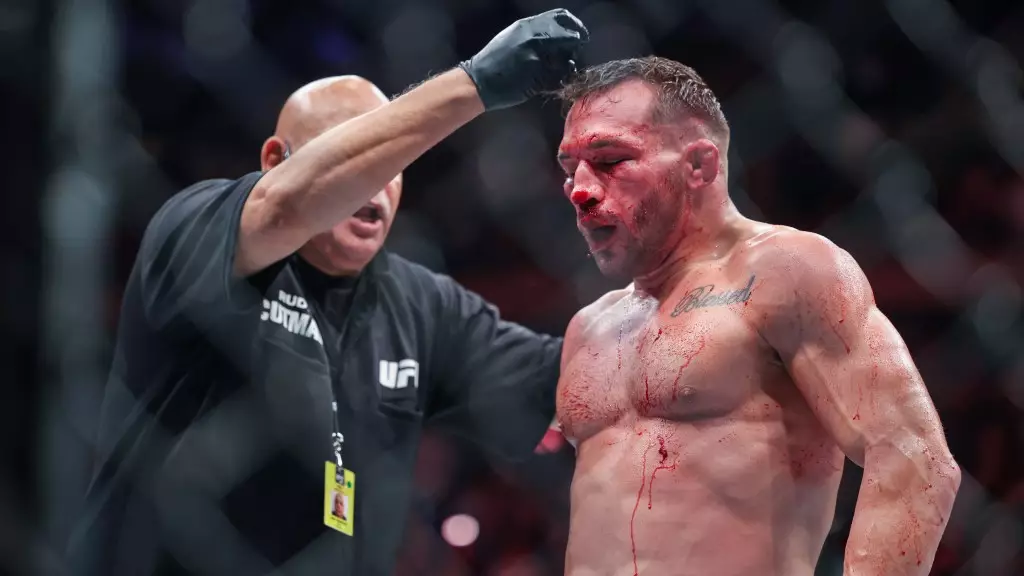In the ever-evolving landscape of mixed martial arts, few fighters have captivated the audience as much as Michael Chandler. However, a critical examination of his recent performances paints a concerning picture for his future in the Octagon. After losing to Charles Oliveira at UFC 309, Chandler’s record stands at 23 wins and 9 losses, with a disheartening 2-4 in the UFC. His latest bout showcased a fighter who, despite displaying moments of resilience, was largely outclassed, raising questions about his competitiveness in the lightweight division.
John McCarthy, a seasoned voice in MMA commentary, draws a striking parallel between Chandler’s current trajectory and that of Tony Ferguson, a previously dominant fighter who once enjoyed a 12-fight winning streak but now faces a stark reality with eight consecutive losses. McCarthy bluntly states, “Michael Chandler has hit Tony Ferguson status.” This comparison serves as both a warning and a wake-up call. Both fighters, despite their past successes, now find themselves wrestling with diminishing returns in a rapidly advancing division.
Chandler’s fanbase has always revered his aggressive fight style and explosive wrestling background. However, with four losses in his last five outings, including a lackluster showing against Oliveira, it’s evident that the speed and precision that once set him apart are now under scrutiny. The lightweight division is unforgiving; fighters must evolve or risk becoming obsolete, a lesson Chandler may be facing sooner rather than later.
The Impact of Layoff and Callouts
An essential factor in Chandler’s recent performances seems to be the extended layoff he took, presumably while waiting for a lucrative fight with Conor McGregor. While strategic fight management is crucial, there’s an inherent risk in allowing the competition to advance while remaining inactive. In competitive sports, particularly in MMA where timing and reflexes are paramount, such delays can lead to stagnation or regression, as evidenced by Chandler’s performance.
After the Oliveira fight, Chandler’s immediate callout of McGregor highlights a desire for marquee matchups. Nevertheless, as McCarthy points out, it’s uncertain how appealing Chandler is to potential opponents. With fighters like Dustin Poirier unwilling to step into the cage with him again due to fears of replicating strategies from Chandler’s recent fights, the question remains: who will he face next? The lightweight division is teeming with hungry contenders, and Chandler’s recent performances may not instill confidence in matchmakers or fans alike.
Moving forward, Michael Chandler needs to reassess his approach both inside and outside the Octagon. This includes acknowledging that stagnation is not an option and that relying on past glories will not secure future victories. Reconnecting with his fighting roots, perhaps through additional training or strategic fights to regain momentum, could be pivotal for his career.
As the landscape of MMA continues to evolve, so too must Chandler. He stands at a crossroads, and how he navigates this pivotal phase could define not just the remainder of his career, but also shape his legacy within the sport. Without significant adjustments, he risks becoming a cautionary tale rather than a celebrated athlete in the world of mixed martial arts.

